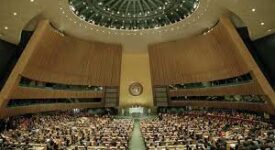The European Union and the United States have condemned the violence during the Bangladeshi elections and pointed out to an array of other irregularities in the vote that saw Prime Minister Sheikh Hasina secure her third consecutive term, having won almost all of the 300 parliamentary seats contested. Bangladesh’s parliament has 350 seats in total, 50 of which are reserved for women. The condemnations are expected to undermine Ms. Hasina’s reputation, which is already subject to Western criticism over authoritarian practices. She has been in power since 2009 while she had also previously ruled between 1996 and 2001.
The violence, which claimed the lives of at least 17 people in clashes between supporters and opponents of Ms. Hasina’s ‘Awami League’, was mostly concentrated outside of the capital of Dhaka. Prime Minister’s opponents have rejected the election results over rigging and voter intimidation while Ms. Hasina in turn described the vote as a peaceful election that saw enthusiastic participation from her supporters.
“Violence has marred the election day, and significant obstacles to a level playing field remained in place throughout the process and have tainted the electoral campaign and the vote,” the EU said in a statement, calling for “a proper examination of allegations of irregularities”. The United States, Bangladesh’s most important foreign investor, expressed concern about “credible reports of harassment, intimidation, and violence in the pre-election period that made it difficult for many opposition candidates and their supporters to meet, hold rallies, and campaign freely.” The US statement further stressed that “we are also concerned that election-day irregularities prevented some people from voting, which undermined faith in the electoral process.”







